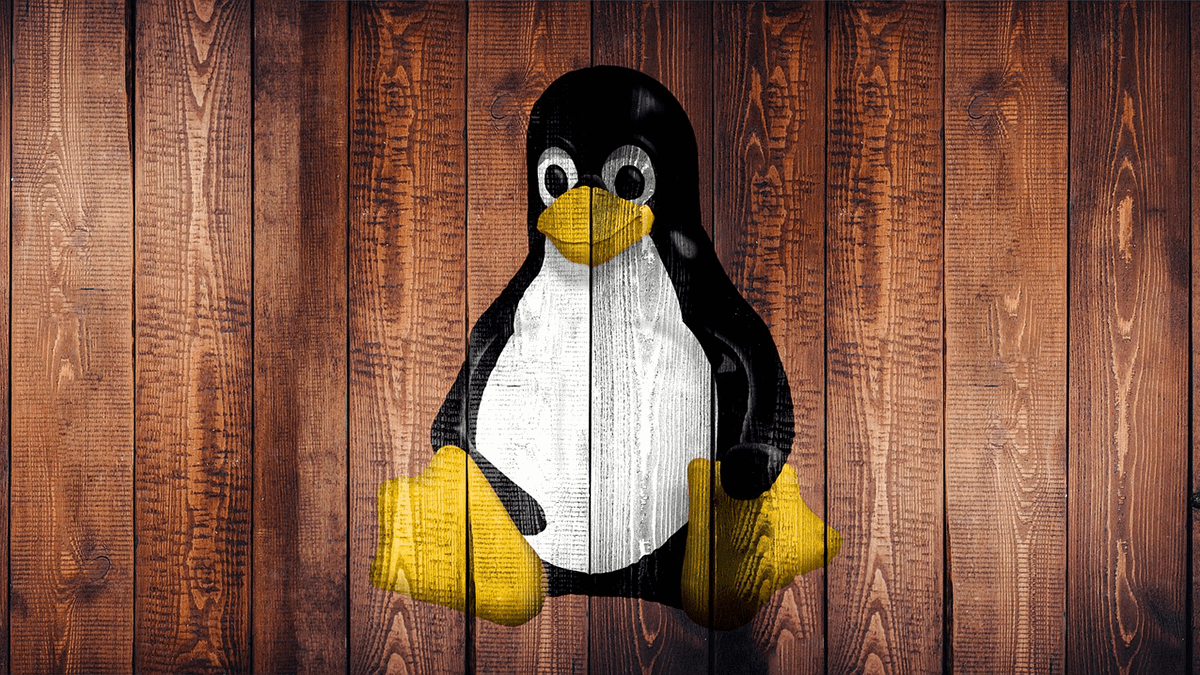In September, Vivaldi became the default browser on the Arch-based Linux distribution Manjaro on its Cinnamon edition. Like all Vivaldi browsers, Vivaldi on Manjaro Cinnamon offers a fast, reliable, and feature-rich browsing experience.
When this video call was arranged, the “agenda” was to discuss our partnership, as well as exploring what drives their love of Linux. But, as often happens when you put clever, creative together, more connections and quirky insights soon emerge. And this video chat takes us down several rabbit trails that don’t disappoint.
So, check out the video for yourself to learn the (often hilarious) truth behind Vivaldi and Manjaro. 😀
In a hurry? Here are some highlights from the discussion.
Let’s talk distros!
I think this is also where we have a deep connection with Vivaldi browser, because it gives me the same feeling. I liked it so much from the start that you can interact with it and can change stuff. Everything isn’t already predefined and pre-decided for you.
Ruarí: Like many Linux users, I’ve gone through many distributions – all the big ones. These days, I tend to run Slackware, but prior to that my distro of choice for two to three years was Arch, on which Manjaro was based.
Manjaro has made it easier to install, but underneath is a very pure form of Linux. I also like the Arch packaging system. It’s so simple to tweak and make your own packages or adjust them.
Nowadays, not just because of this collaboration but because of my experience with Arch, Manjaro is a distro that I do honestly recommend to new Linux users, because it has made Arch more accessible – kind of like what Ubuntu did for Debian.
Bernhard: My roots, and it’s probably why I was attracted to this deep Linux experience, are with Atari. I was used to living under the hood of an operating system. Professionally, mostly in the music business, I used Windows for a long time, but grew intrigued by Linux.
I was ambivalent about whether to be really brave and do the hardcore stuff or play it safe. Being a little shy, I started out with Ubuntu. But with my hardware, I hit the limits pretty quickly, with my new laptop. So, having heard a lot of positive things about it, I jumped into Manjaro. It was about seven or eight years ago, and likely more of an exciting experience, since it is more polished and easier to use now – and much harder to break than it was back then.
As a matter of fact, when I started using Manjaro, I had some issues I had to fix, broke my system, and fixed it again. So, I got to know it very well on a basic level and have stayed with it ever since. Later, I got more involved with development and fixing stuff internally.
Ruarí: I just want to comment here that it’s very easy to dive deep into a distribution like Manjaro or Slackware. As you say, you can get into the nitty gritty. And whilst you guys have a lot of polish, what I like about these distros is that they’re simple from an engineering perspective. People already know that I’m a unicyclist, right? (Ed note: Yes, Ruarí, we know. Ride or die! 𐃏 🔥) And a unicycle is simpler than a bike – not in terms of it being harder or easier to ride but in engineering terms.
What I love about these kinds of distros is that Manjaro has a nice polish, but underneath it’s a very pure kind of system. There’s a lot of great documentation and a fantastic community, so you can get into the nuts and bolts. And when something breaks, it feels like you can fix it.
With some of the other distros, they kind of get in your way too much. They want to simplify things from a UI perspective but maybe get too messy.
Bernhard: It’s one of the things I like so much. The mechanical feel of anything you use, as opposed to something that is over-assisted. Like a car that has a manual transmission versus an automatic. Even if it’s just little things, I like having the possibility to change stuff, to tweak it differently.

I think this is also where we have a deep connection with Vivaldi browser, because it gives me the same feeling. I liked it so much from the start that you can interact with it and can change stuff. Everything isn’t already predefined and pre-decided for you.
Philip: It was more or less a long time before I found Manjaro. When I was in school, my father had a computer shop. He told me, “Hey, here are the computer parts, build it yourself. There’s some Windows 3.11 disks.”
I started with MS-DOS. There were some old games I used to play like Indiana Jones, Monkey Island and other things. From there, I followed the Windows road up to Windows 7.
In the school time I was always coding. My mother would be shouting “Dinner is ready! Come down” and I would keep coding. So then suddenly the power was shut off. Of course, this just led me to think about backups, etc. And this is what led me away from Windows to Linux. First I tried SUSE, Ubuntu and Mandriva. All the classics. I would switch between KDE and GNOME – GNOME2 was really great from the user’s perspective.
Then, I looked for the least-known Linux distribution, without an installer and found one from Switzerland. I joined the two maintainers and created the graphical installer. It was doing the package builds that led me to Arch-based versions.
When Roland Singer announced an Arch installer called Manjaro, I was interested. And it turned out he lived only two towns away. So I went to meet him and from there it started to take shape. I suggested we shut it down for a year to do everything right. Manjaro was born, and, 10 years later, here we are.
Bernhard mentioned he was into music. What’s up with that?
They say Linux guys are very creative. They tweak and tune their software and try to make their own stuff all the time, so this is what we’re going to do. We’re going to make music and give people a platform for using their distros.
One connection may be the creative part and the tweaking part, and the fact you are used to constantly learning. It’s always in motion, always changing, and you adapt. I think Vivaldi has a similar philosophy of adapting to its users and letting them do what they want with their browser.
Bernhard: I used to be a singer. I’m still doing different stuff, but my education was in music composition and opera. I toured Europe and the world for quite a lot of years.
Varsha: We have a couple of singers in Vivaldi, and at least one of our Icelandic guys does Opera. So at some point, if you get over here, we’ll have to get you two together
Bernhard: And probably sing Vivaldi.
Varsha: Even better.
Bernhard: Yeah. I did a lot of Baroque music.
They say Linux guys are very creative. They tweak and tune their software and try to make their own stuff all the time, so this is what we’re going to do. We’re going to make music and give people a platform for using their distros.
One connection may be the creative part and the tweaking part, and the fact you are used to constantly learning. It’s always in motion, always changing, and you adapt. I think Vivaldi has a similar philosophy of adapting to its users and letting them do what they want with their browser.
What are today’s pressing issues for operating systems?
To link back to Vivaldi and what we have in common with Manjaro, Vivaldi users are very much the kind of people who have opted out of the default. They looked for something different and found us. In both cases, it’s people stepping outside the box.
Philip: Well, one of the issues might be the ads. Take Windows 11. In the start menu, they will advertise Microsoft Teams and other software they produce. And when they did the last dev cycle of Windows 11, there was a crash because one Microsoft Teams ad and own software was simply crashing Windows, which is pretty bad.
On the macro side, it’s good to have this environment, but you’ll not experience everything your computer can do. With Linux, you can run it on a fridge, on a car, on other devices. Even ATMs, if they’re properly done, can run Linux. Yet, if you go to the bank, you’ll mostly see Windows XP, which is no longer being updated. Once a friend and I were in Bali and withdrew money from separate ATMs in a shop. After we left, a technician used a USB stick to get all the data out from the machine my friend had used. The next day, his bank calls and tells him there were attempts at 3 different banks to withdraw money from his account. That’s what happens when you don’t have a secure operating system.
Ruarí: I think the customizability thing is obviously a massive thing. As you say, you can tweak the distro to be exactly what you want. You know the joke was always “You run Linux on toasters”, but it can run on literally every device – from toasters to phones and super computers – and it’s really nice for the desktop side of things.

One thing that’s super important to note is that Linux is a bit special. When you buy a computer it typically comes with Mac OS or Windows, so all the Linux users are people who have gone out of their way to install it. This is where I think distros like Manjaro – and Ubuntu, to be fair to them – have simplified and optimized the install, making it possible to run something else. It’s kind of the key. So you’re doing great work, getting people out of the loop.
To link back to Vivaldi and what we have in common with Manjaro, Vivaldi users are very much the kind of people who have opted out of the default. They looked for something different and found us. In both cases, it’s people stepping outside the box.
This is only a sampling of what the discussion covered. Want to hear about how all browsers lead to back to Linux? What phone possibilities beyond Big Tech are emerging? The latest on Theming? How Vivaldi and Manjaro hooked up in the first place? Just how many cycles Ruarí has? And how exactly do Judo and Baywatch fit into all this? Well, you’ll just have to check out the full video to find out. We promise you won’t be sorry! 😎
As you may suspect, there’s plenty to talk about from this chat, so let us know what you think in the comments below. 👇


